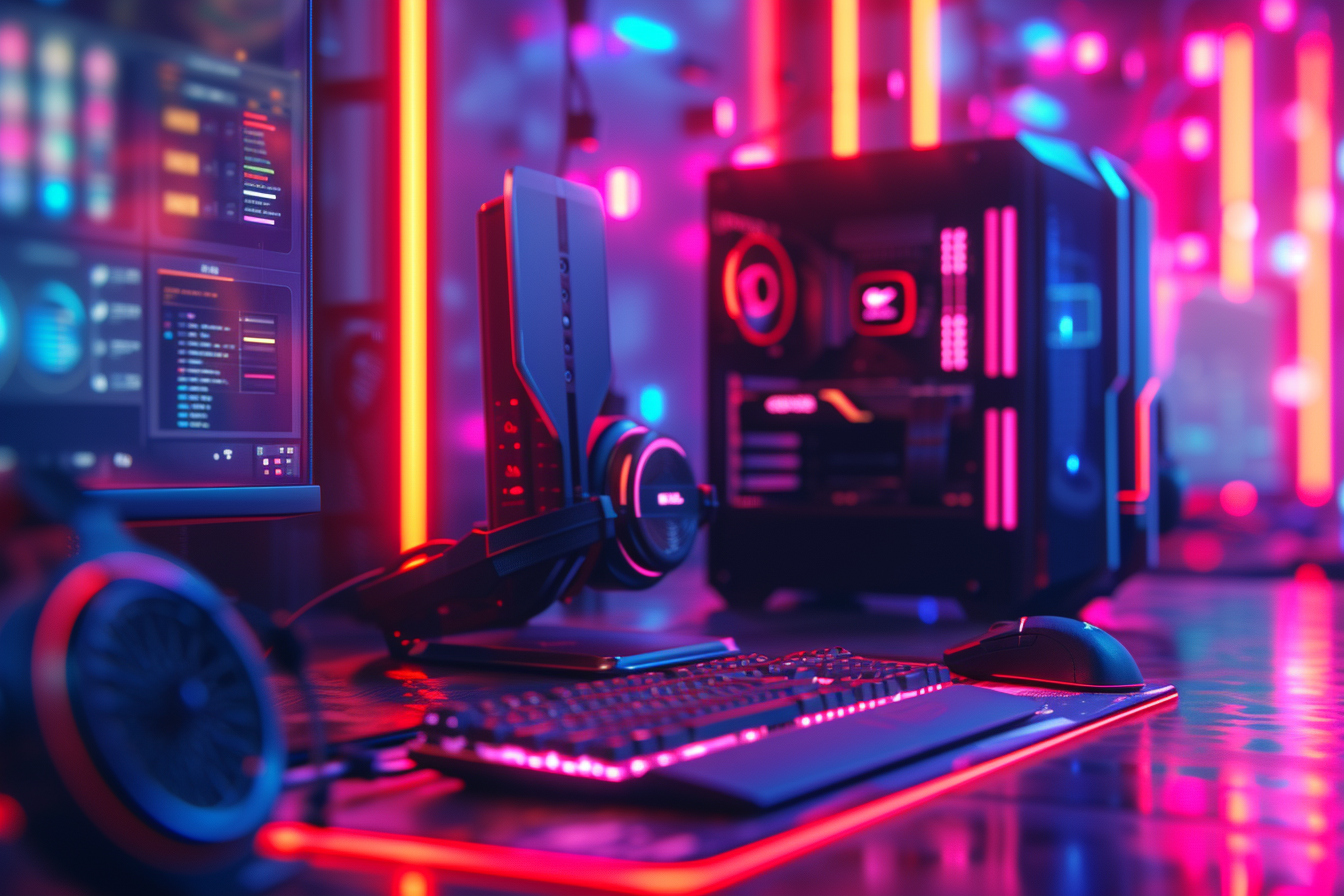Selecting the ideal gaming PC can be a high-stakes quest—filled with technical jargon and a plethora of component choices, the process is both exciting and overwhelming. Whether you’re a casual player delving into weekend skirmishes or a hardcore enthusiast demanding ultra-high settings on the latest titles, understanding which factors influence gaming performance will elevate your gaming experience. This comprehensive guide will help you navigate the intricate landscape of picking a gaming PC that aligns seamlessly with your needs for top-tier performance.
System performance and your gaming needs
The central processing unit (cpu)
Your gaming PC’s brain, the Central Processing Unit (CPU), orchestrates your games and other processes. When considering a CPU for gaming, clock speed and core count are paramount. Look for a processor that offers a high clock speed (measured in GHz) for swift performance. More cores and threads allow for efficient multitasking and smoother gameplay in titles that take advantage of multi-threading. Aim for at least a quad-core processor, with six to eight cores being the sweet spot for most gamers.
Graphics processing unit (gpu)
The star of any gaming PC is undoubtedly the Graphics Processing Unit (GPU), which renders the visuals of your game. Your GPU determines how well your system can handle high resolution and the graphics settings of your games. Higher memory (at least 4GB, better 6GB or 8GB) and a robust GPU architecture will ensure your PC can render games crisply and fluidly. It’s worth noting that balancing your GPU with your CPU is essential to avoid bottlenecks where one component limits the other’s performance.
Memory and storage solutions
Random access memory (ram)
RAM serves as the immediate memory resource for your CPU, allowing for quick access to game data. For gaming in the current landscape, 8GB is the minimum, but 16GB is recommended to give you ample room for complex game worlds and flashy multitasking. Speeds, expressed in MHz, are also a consideration, but capacity tends to outweigh the benefit of faster RAM for gaming.
Storage types: ssds vs hdds
Loading times and overall system responsiveness are greatly influenced by the storage type. Hard Disk Drives (HDDs) are traditional, offer more space for less cost, but are slower. Solid State Drives (SSDs), on the other hand, promise lightning-fast load times and a snappier system. They’re more expensive, but even a smaller SSD for your operating system and a handful of games, paired with a larger HDD for bulk storage, can be a powerful combination.
Motherboard and expansion potential
Compatibility and Features
Your motherboard is the unsung hero connecting all the components. Make sure your motherboard is compatible with your chosen CPU (socket type) and has enough RAM slots. Beyond that, expansion slots for additional GPUs, USB ports for peripherals, and other features like onboard WiFi or audio should match your long-term gaming aspirations.
Future-Proofing
The ability to upgrade parts can extend the life of your gaming PC, so consider a motherboard with room for growth. This includes thinking about PCIe slots for future GPU upgrades, potential for more RAM, and even overclocking capabilities if you’re looking to squeeze out more performance down the line.
Power supply and cooling
Power Supply Unit (PSU)
A reliable Power Supply Unit (PSU) is vital as it fuels your components. It should be robust enough to handle all your parts, with some headroom for future upgrades. Look at the total wattage, and aim for a PSU that can provide more power than your current components consume. Also, consider efficiency ratings (80+ Bronze, Silver, Gold, etc.), as a more efficient PSU can save on long-term energy costs.
Cooling Systems
Powerful components generate heat, and that heat needs to be efficiently managed to maintain performance. Basic cooling might suffice for modest setups, but a robust system, especially one designed for overclocking, will require advanced cooling solutions. Options range from upgraded air coolers to all-in-one (AIO) liquid coolers or custom water-cooling loops for the most enthusiastic. Effective airflow within the case is also critical to keep temperatures in check.
The aesthetics and build quality
A high-performance gaming PC need not compromise on aesthetics. Chassis design can influence airflow, the ease of component installation, and even noise levels, so a thoughtfully designed case is an asset. Additionally, components with RGB lighting and color schemes can be selected for a visually cohesive build that aligns with personal style preferences.
Brand and warranty considerations
Picking the Right Brand
In a market flooded with components, brand reputation for quality and performance can be an indicator of reliability. Established brands usually have a track record of durability and customer service, which should be factored into your decision-making process.
Warranty and Support
A comprehensive warranty for your components safeguards your investment. Research each part’s warranty, keeping in mind that longer warranty periods or the inclusion of additional support can be invaluable if something goes awry with your system.
Gaming PCs are intricate machines, and the process to select the perfect one is no less complex. With personal gaming habits in mind and the key factors of CPU, GPU, RAM, storage, motherboard, cooling, and power adequately considered, the journey toward an elite gaming experience can begin. Additional aspects like aesthetics and support further fine-tune this venture. The steps toward a transcendent gaming escapade are many, but armed with the right knowledge, the path becomes clear. The choreography of seamlessly integrated components dancing in unison within your chosen rig can turn the fantasy of flawless gaming into reality. Welcome to a world where every frame is a brush stroke on a digital canvas, and every component choice is a testament to the artistry of gaming.

